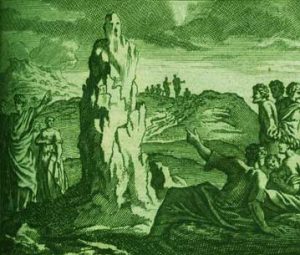Who was Cragaleus in Greek Mythology

Each god presented his arguments and Cragaleus decided in favor of Heracles, but Apollo, enraged, touched him and turned him into stone in the very place where he had issued his decision. After every celebration of Hercules, the Ambrakiites offered him a sacrifice.
Cragaleus is a lesser-known figure and is not frequently mentioned in mainstream mythological texts. However, according to some sources, he was a man who was transformed into a stone. This transformation is usually attributed to a punishment or a curse, often involving one of the gods.
The story involving Cragaleus appears in the context of ancient Greek beliefs about the numinous or divine forces manifesting through natural elements, such as rocks or trees, which were often considered sacred. Such transformations were not uncommon in myths as forms of divine retribution or as a means of immortalizing a person’s memory in the landscape of Greece.
Unfortunately, detailed narratives about Cragaleus are scarce, as he does not feature prominently in well-known works like those of Homer, Hesiod, or Ovid. His story might be preserved in local folklore or lesser-known mythological texts that have not been as widely circulated or studied as the major epics and anthologies.
Meaning of the Myth
When mortals are involved in god-disputes as judges, they cannot but suffer the consequences of the wrath of the “wronged,” or rather the “struck down,” but also enjoy honors for their good services to the won.
